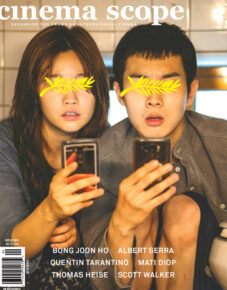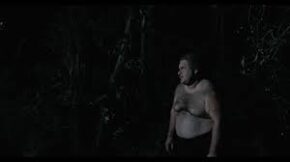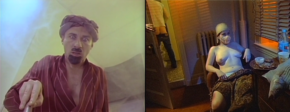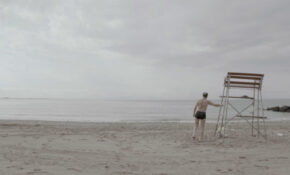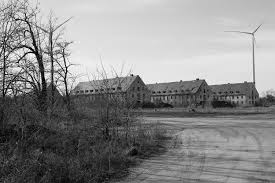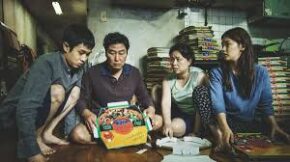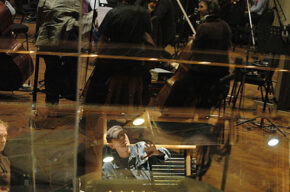CS79
The Good Fight: The Films of Julia Reichert
By Bob Kotyk | 07/03/2019 | CS79, Features, From Cinema Scope Magazine
By Robert Kotyk In the first scene of Julia Reichert’s first film, Growing Up Female (co-directed with Jim Klein, 1971), a woman takes the hand of a young girl, walks her down the front steps of a house, and guides her along an Ohio sidewalk, the girl moving along as though in a trance, taking in…
Read More → Cinema Scope 79 Table of Contents
By Cinema Scope | 06/27/2019 | CS79, From Cinema Scope Magazine, Table of Contents
Cinema Scope Issue 79 with Features including .. Truth and Method: The Films of Thomas Heise by Michael Sicinski, Thinking in Images: Scott Walker and Cinema by Christoph Huber, 58th Venice Biennale, Cannes and DVD Reviews.
Read More → Jeanne (Bruno Dumont, France)
By Blake Williams | 06/27/2019 | CS79, Festivals, From Cinema Scope Magazine, Spotlight
I’ve exited the last several Bruno Dumont films wondering—only somewhat in jest—whether or not their maker had gone completely insane. Until 2014, Dumont was notorious for his straight-faced, neo-Bressonian, severely severe dramas that interrogated the intersection of spiritualism and material form.
Read More → Issue 79 Editor’s Note
By Mark Peranson | 06/27/2019 | Columns, CS79, From Cinema Scope Magazine
Excuse me if I come across as discombobulated, it’s not because of any movie I’ve watched recently. No, I’m talking about far more important things than cinema: this issue is in the process of being closed while deep in the throes of Raptors mania, to be precise, the incredible goings-on of Game 4.
Read More → Exploded View | Flaubert Dreams of Travel But the Illness of His Mother Prevents It
By Chuck Stephens | 06/27/2019 | Columns, CS79, Exploded View, From Cinema Scope Magazine
Undersung filmmaker Ken Kobland’s strange, sumptuous slice of classically minded surrealism, Flaubert Dreams of Travel But the Illness of His Mother Prevents It, created in 1986 in collaboration with The Wooster Group (America’s experimental-theatre ensemble extraordinaire) is, too, a creature born from Flaubert’s polymorphous bestiary.
Read More → The Souvenir (Joanna Hogg, UK/US)
By Robert Koehler | 06/27/2019 | CS79, Currency, From Cinema Scope Magazine
Given the evidence of Federico Fellini’s 8½ (1963) and François Truffaut’s Day for Night (1974), time isn’t kind to moviemakers who decide to leap into autobiography: too often, such an endeavour entails rampant solipsism, a romanticization of history, and getting the practice of moviemaking (and cinema itself) entirely wrong.
Read More → The Hottest August (Brett Story, Canada/US)
By Adam Nayman | 06/27/2019 | CS79, Currency, From Cinema Scope Magazine
It is, it seems, the End of the World as We Know It. Forty-two years after R.E.M. wrote the West’s definitive apocalypse-now anthem, the song’s essentially optimistic subtext has become even more sharply double-edged; its parenthetical proviso can be interpreted as much as a sign of denial as resignation, a means of keeping any anticipatory psychic torment at bay.
Read More → Global Discoveries on DVD: Extras and Streaming, Now, Then, and There
By Jonathan Rosenbaum | 06/27/2019 | Columns, CS79, DVD Reviews, From Cinema Scope Magazine
Readers of Movie Mutations, the 2003 collection I co-edited with Adrian Martin, will know that the Jungian notion of global synchronicity has long been a preoccupation of mine.
Read More → Film/Art | Curses and Blessings: Moving Images at the 58th Venice Biennale
By Erika Balsom | 06/27/2019 | Columns, CS79, Film - Art, From Cinema Scope Magazine
By Erika Balsom I wouldn’t wish living in times like these on anyone. This, of course, is the irony of the title of Ralph Rugoff’s exhibition for this year’s Venice Biennale, “May You Live in Interesting Times.” On the surface, the phrase reads as a blessing; actually, it is a curse. Add to this the…
Read More → Truth and Method: The Films of Thomas Heise
By Michael Sicinski | 06/27/2019 | CS79, Features, From Cinema Scope Magazine
“Archaeology is about Digging” is the title of an essay by Thomas Heise, included in the DVD booklet for several of his films, including the 2009 film Material, a key film in terms of raising Heise’s profile outside of Europe. In the essay, the filmmaker describes the circumstances surrounding the making of the films included on the disc, particularly those early works made while living in the GDR prior to the fall of the Berlin Wall
Read More → Parasite (Bong Joon Ho, South Korea)
By Adam Cook | 06/24/2019 | CS79, Festivals, From Cinema Scope Magazine, Spotlight
Precisely a decade after his last film shot and produced in South Korea, Bong Joon Ho returns to a place that feels both familiar and unfamiliar with his Palme d’Or-crowned Parasite. Moving beyond the ambitious, overly conceptual, and uneven international co-productions Snowpiercer and Okja, Parasite feels like a movie that only could have been made after such an awkward foray into globalized filmmaking.
Read More → Thinking in Images: Scott Walker and Cinema
By Christoph Huber | 06/21/2019 | CS79, Features, From Cinema Scope Magazine
“I am forever indebted to cinema,” wrote singer-songwriter Scott Walker in 2007. “It’s always been there for me in all manner of ways. I would not have lived my life here in Europe without it. Now and then I’ve found myself wandering in dark towns or cities rather like those depicted by Kaurismäki. Have turned a corner and there was salvation looming before me in the form of a movie house.
Read More → 

